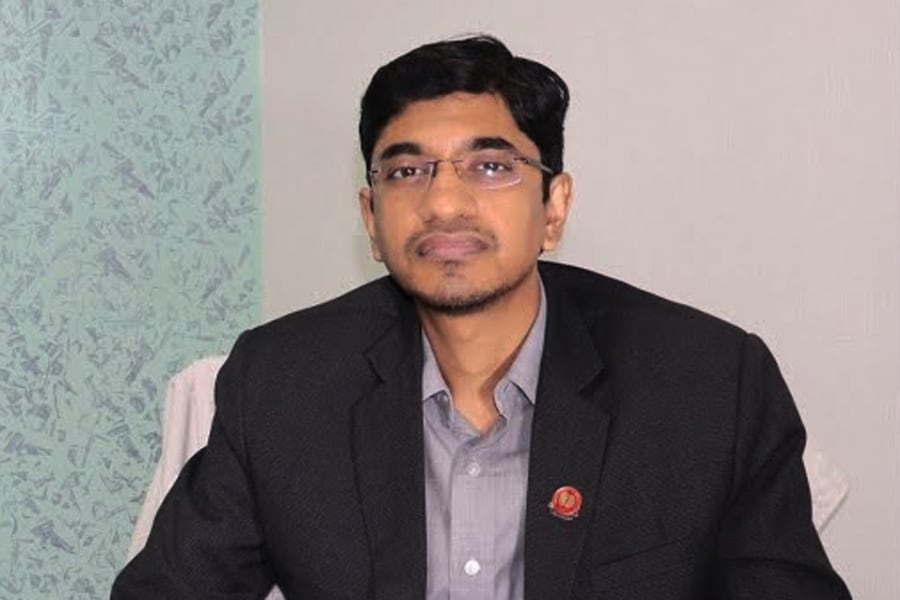CKD and Kidney Protection
Dr. Abhilash Chandra, Professor (Junior Grade), MBBS, MD, DM, (Consultant Nephrologist and HOD), RML Hospital, Lucknow


 CKD is called chronic kidney disease because the disease does not show its symptoms quickly. It shows when the kidney has been damaged by about 70 to 80 percent. In CKD, the process of kidney damage is very slow, which lasts for months or years. Kidney mainly performs eGFR (Estimated glomerular filtration rate) i.e. function of glomerular filtration and by measuring the rate of this function doctors determine the stage of kidney failure. The process of kidney failure is divided into five stages. About 3,00,000/- people are diagnosed with end stage kidney failure every year in India. About 80% of them die in the next one year, only 10-15% get dialysis treatment. There are two types of dialysis that is peritoneal dialysis and hemodialysis and both these are the treatment of kidney failure.
CKD is called chronic kidney disease because the disease does not show its symptoms quickly. It shows when the kidney has been damaged by about 70 to 80 percent. In CKD, the process of kidney damage is very slow, which lasts for months or years. Kidney mainly performs eGFR (Estimated glomerular filtration rate) i.e. function of glomerular filtration and by measuring the rate of this function doctors determine the stage of kidney failure. The process of kidney failure is divided into five stages. About 3,00,000/- people are diagnosed with end stage kidney failure every year in India. About 80% of them die in the next one year, only 10-15% get dialysis treatment. There are two types of dialysis that is peritoneal dialysis and hemodialysis and both these are the treatment of kidney failure.
Tips to Keep Kidney Healthy
There are many ways to prevent kidney disease. So why wait till you have kidney disease? Following are the steps to take care of your kidney health:
Low Sodium/Salt Diet: Keep the sodium or salt in your diet under control, which means you have to avoid packaged / restaurant foods as well. Also, don"t add extra salt to your food. A low-salt diet reduces the load on the kidney and prevents the development of disorders related to high blood pressure and also prevents the progression of kidney disease.
Maintain Proper Body Weight: Eat healthy and keep your weight under control. Get your body"s cholesterol level checked regularly to prevent the accumulation of cholesterol in the arteries of your kidneys. Avoid saturated fat and fatty fried foods from the diet and emphasize eating plenty of fruits and vegetables daily. Increasing the weight of a person increases the load on the kidneys. Try to aim for a given BMI of 24 or less, especially in the Indian context.
Monitor Blood Pressure: Regularly check your blood pressure levels and keep them under optimum levels. Kidney failure is very common in patients and can be prevented if detected early. That"s why keeping regular checkups on your scalp is advised to avoid sweets and visit a doctor.
Avoid saturated fat/fatty fried foods from the diet and emphasize on eating lots of fruits and vegetables daily. Increasing the weight of a person increases the load on the kidneys. Try to aim for a BMI of 24 or less, especially in the Indian scenario.
Check blood sugar levels regularly and keep them under optimal levels. Kidney failure is very common in diabetic patients and can be prevented if detected early. Hence it is advised to keep a regular check on your blood sugar level, avoid sugary food products. Balance your lifestyle properly by getting at least 8 hours of restful sleep. To stay healthy, it is necessary to have a good sleep at night.
Kidney stones increase the risk of developing chronic kidney disease. lf you have had one stone, you are at increased risk of having another stone. Those who have developed one stone are at approximately 50% risk for developing another within 5 to 7 years.
The pages slugged ‘Brand Connect’ are equivalent to advertisements and are not written and produced by Forbes India journalists.
First Published: Dec 20, 2022, 17:44
Subscribe Now